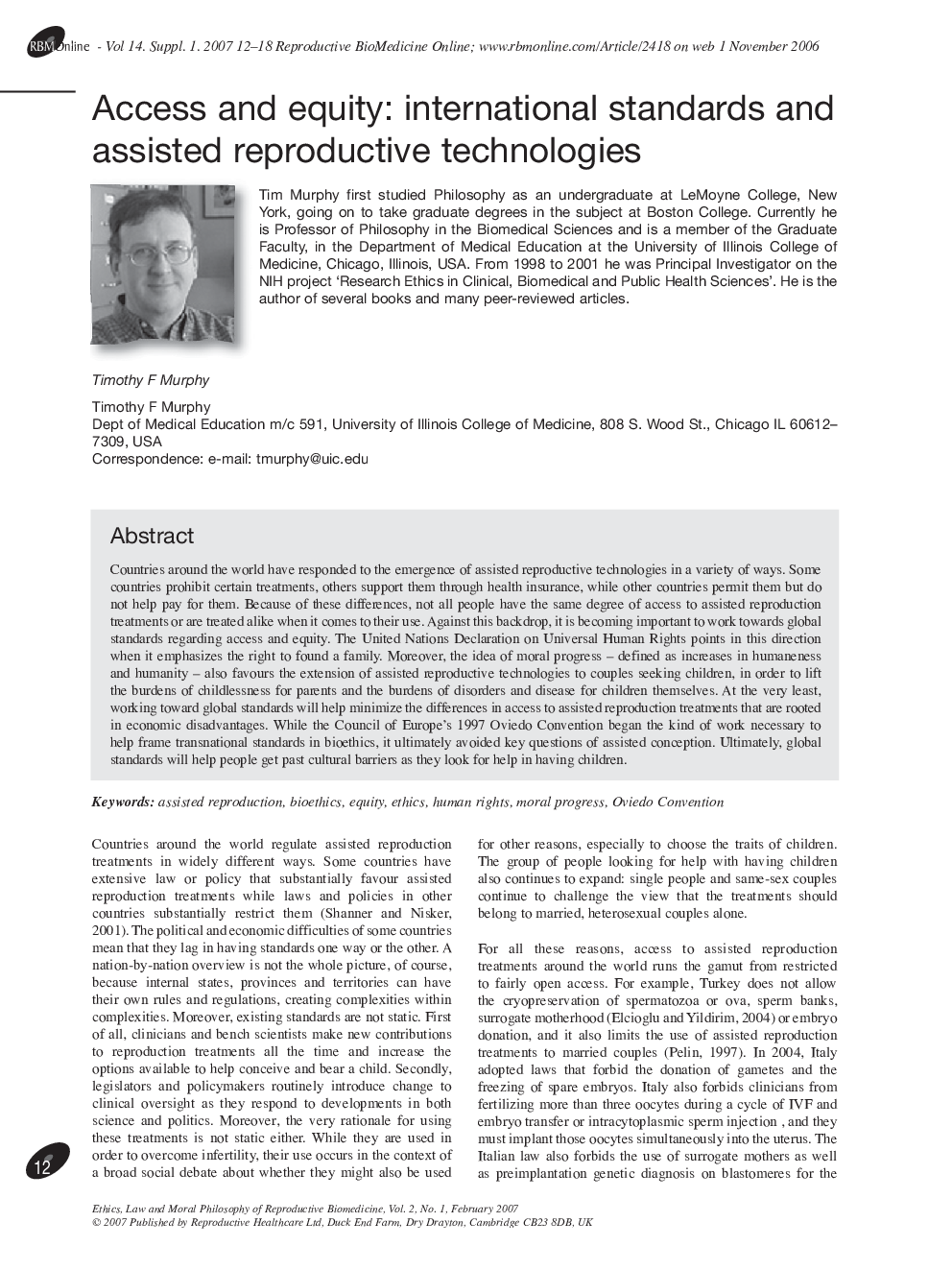| کد مقاله | کد نشریه | سال انتشار | مقاله انگلیسی | نسخه تمام متن |
|---|---|---|---|---|
| 3973473 | 1256858 | 2007 | 7 صفحه PDF | دانلود رایگان |

Countries around the world have responded to the emergence of assisted reproductive technologies in a variety of ways. Some countries prohibit certain treatments, others support them through health insurance, while other countries permit them but do not help pay for them. Because of these differences, not all people have the same degree of access to assisted reproduction treatments or are treated alike when it comes to their use. Against this backdrop, it is becoming important to work towards global standards regarding access and equity. The United Nations Declaration on Universal Human Rights points in this direction when it emphasizes the right to found a family. Moreover, the idea of moral progress – defined as increases in humaneness and humanity – also favours the extension of assisted reproductive technologies to couples seeking children, in order to lift the burdens of childlessness for parents and the burdens of disorders and disease for children themselves. At the very least, working toward global standards will help minimize the differences in access to assisted reproduction treatments that are rooted in economic disadvantages. While the Council of Europe's 1997 Oviedo Convention began the kind of work necessary to help frame transnational standards in bioethics, it ultimately avoided key questions of assisted conception. Ultimately, global standards will help people get past cultural barriers as they look for help in having children.
Journal: Reproductive BioMedicine Online - Volume 14, Supplement 1, 2007, Pages 12-18